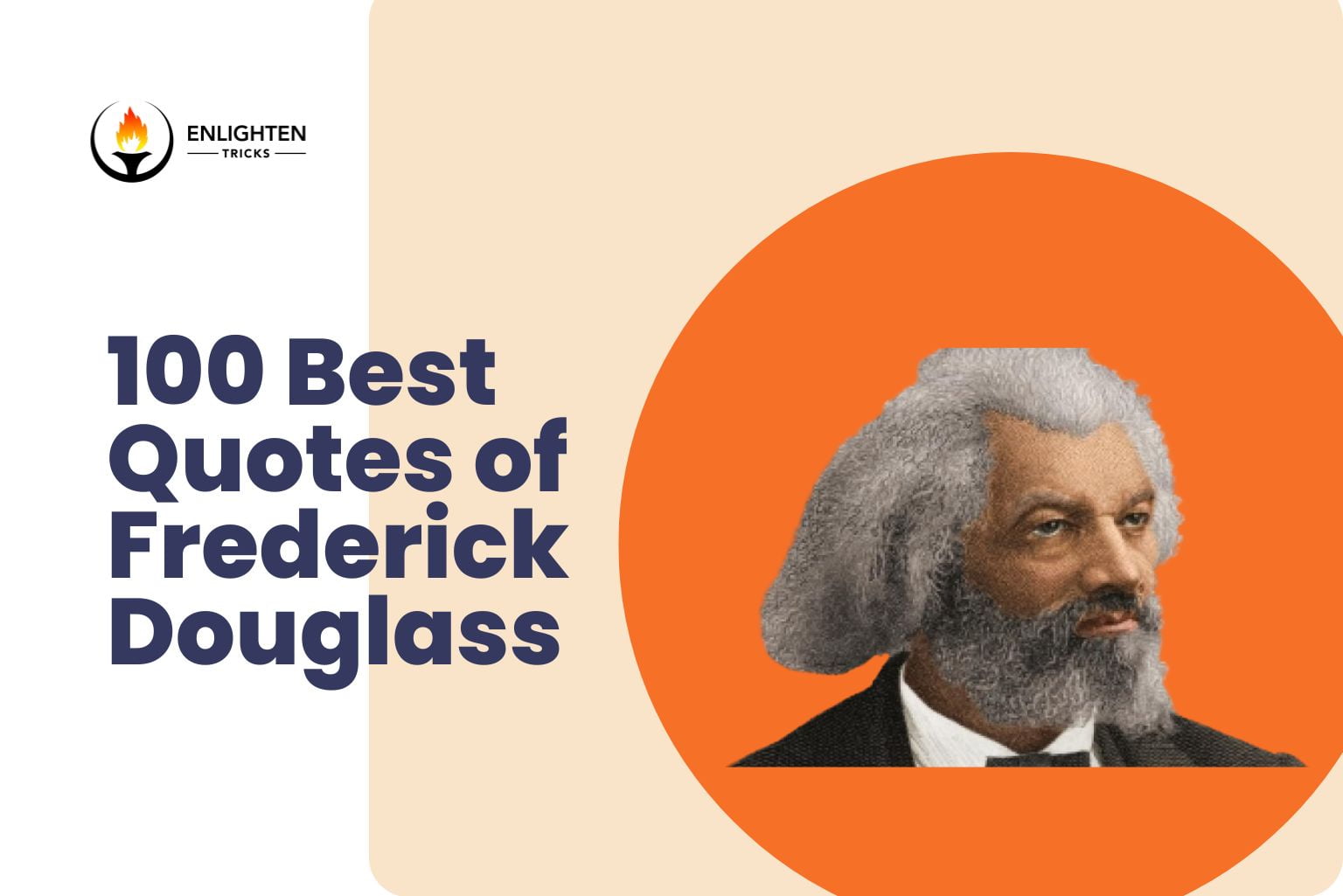In the annals of history, few names have left an indelible mark on the way we understand life, ethics, politics, and knowledge like Aristotle. A polymath whose thoughts have traversed through centuries, Aristotle’s teachings continue to influence and inspire. This comprehensive exploration delves into the heart of his philosophy, revealing insights on life, happiness, love, education, and many more facets of human existence. Aristotle’s profound quotations not only reflect his deep understanding of the world but also offer timeless wisdom that remains relevant in today’s society. Through this journey, we aim to connect with Aristotle’s perspectives, uncovering the layers of his thoughts on crucial aspects such as ethics, justice, nature, and the soul through Aristotle quotes.
Aristotle quotes: Embracing Aristotle’s Legacy
Each section of this content is dedicated to a specific theme, enriched with ten of Aristotle’s most touching and famous quotes, providing not just an understanding but a reflection of his timeless wisdom. Let us embark on this journey to explore the depths of wisdom, guided by one of the greatest philosophers of all time.
1. Aristotle Quotes on Life
Aristotle, one of the most influential philosophers in history, had profound insights into the nature and purpose of life. His views emphasize the importance of reason, virtue, and living a life that fulfills one’s potential.
“The unexamined life is not worth living.”
“Life is full of chances and changes, and the most prosperous of men may…meet with great misfortunes.”
“The energy of the mind is the essence of life.”
“Happiness depends upon ourselves.”
“The ultimate value of life depends upon awareness and the power of contemplation rather than upon mere survival.”
“In all things of nature there is something of the marvelous.”
“Knowing yourself is the beginning of all wisdom.”
“It is during our darkest moments that we must focus to see the light.”
“Pleasure in the job puts perfection in the work.”
“To enjoy the things we ought and to hate the things we ought has the greatest bearing on excellence of character.”
Aristotle’s view on life is deeply rooted in the pursuit of knowledge, self-awareness, and the realization of one’s potential. Aristotle quotes remind us of the importance of introspection, resilience, and finding joy and purpose in our lives.
2. Aristotle on Happiness
Aristotle’s concept of happiness is not just about feeling good but about living a virtuous life. What we found in Aristotle quotes, happiness (eudaimonia) is the end goal of human existence, a state of being achieved through the fulfillment of one’s nature.
“Happiness is the meaning and the purpose of life, the whole aim and end of human existence.”
“Happiness depends upon ourselves.”
“To live happily is an inward power of the soul.”
“Happiness is an activity of soul in accordance with virtue.”
“The more you know, the more you realize you don’t know – the less you know, the more you think you know.”
“Happiness is a state of activity.”
“Pleasure in the job puts perfection in the work.”
“Happiness is a quality of the soul…not a function of one’s material circumstances.”
“He who has overcome his fears will truly be free.”
“It is not always the same thing to be a good man and a good citizen.”
Aristotle’s approach to happiness challenges us to find joy and fulfillment not in material possessions or fleeting pleasures but in living a life of virtue, purpose, and rationality. Aristotle happiness quotes encourage us to cultivate our inner selves and strive towards our highest potential.
3. Aristotle Love Quotes and Insights
For Aristotle, love is more than a feeling; it’s a force that binds society and a critical component of a good life. His view encompasses the love of friends, family, and romantic partners, and emphasizes the role of love in ethical and virtuous living.
“Love is composed of a single soul inhabiting two bodies.”
“Wishing to be friends is quick work, but friendship is a slow ripening fruit.”
“Friendship is a single soul dwelling in two bodies.”
“All friendly feelings for others are an extension of a man’s feelings for himself.”
“The antidote for fifty enemies is one friend.”
“Without friends, no one would choose to live, though he had all other goods.”
“In poverty and other misfortunes of life, true friends are a sure refuge.”
“Friendship is essentially a partnership.”
“What is a friend? A single soul dwelling in two bodies.”
“He who loves to seek wisdom loves himself.”
Aristotle’s quotes on love emphasize its fundamental role in human relationships and personal growth. Through perspective, we see that love, for him, is about deep connection, mutual respect, and shared growth, forming the foundation of a meaningful life.
4. Aristotle Quotes on Education
Aristotle considered education to be the cornerstone of a well-functioning individual and society. He believed it was through education that we cultivate virtue and achieve our potential.
“Educating the mind without educating the heart is no education at all.”
“The roots of education are bitter, but the fruit is sweet.”
“Those who educate children well are more to be honored than they who produce them; for these only gave them life, those the art of living well.”
“It is the mark of an educated mind to be able to entertain a thought without accepting it.”
“All men by nature desire to know.”
“The educated differ from the uneducated as much as the living from the dead.”
“The mind is not a vessel to be filled, but a fire to be kindled.”
“Education is an ornament in prosperity and a refuge in adversity.”
“Learning is not child’s play; we cannot learn without pain.”
“The whole is more than the sum of its parts.”
For Aristotle, education is not merely about acquiring knowledge; it is about shaping the soul. His quotes inspire a deeper appreciation for education as a lifelong journey that enriches our minds and hearts.
5. Aristotle’s Knowledge Philosophy
Aristotle philosophy on knowledge was groundbreaking. He saw knowledge not just as information, but as a tool for understanding the world and achieving a good life.
“Knowing yourself is the beginning of all wisdom.”
“The more you know, the more you realize you don’t know.”
“All men by nature desire to know.”
“It is the mark of an educated mind to be able to entertain a thought without accepting it.”
“The aim of art is to represent not the outward appearance of things, but their inward significance.”
“The root of all learning is bitter, though the fruit is sweet.”
“The least initial deviation from the truth is multiplied later a thousandfold.”
“It is during our darkest moments that we must focus to see the light.”
“To write well, express yourself like the common people, but think like a wise man.”
“What is a friend? A single soul dwelling in two bodies.”
Aristotle quotes on knowledge emphasize the importance of continuous learning and self-reflection. His insights encourage us to pursue knowledge not just for practical reasons but for personal growth and understanding.
6. Character According to Aristotle
Character was a central theme in Aristotle’s philosophy. He believed that virtues, habits of character, are essential for living a good and fulfilling life.
“The high-minded man must care more for the truth than for what people think.”
“Excellence is an art won by training and habituation.”
“Character may almost be called the most effective means of persuasion.”
“It is the nature of desire not to be satisfied, and most men live only for the gratification of it.”
“Good habits formed at youth make all the difference.”
“The greatest virtues are those which are most useful to other persons.”
“The aim of the wise is not to secure pleasure, but to avoid pain.”
“Patience is bitter, but its fruit is sweet.”
“We are what we repeatedly do. Excellence, then, is not an act, but a habit.”
“One swallow does not make a summer, neither does one fine day; similarly one day or brief time of happiness does not make a person entirely happy.”
Aristotle quotes on character emphasize the importance of cultivating virtues through consistent practice. His wisdom guides us to understand that our character is shaped by our daily habits and actions.
7. Aristotle on Ethics and Morality
Aristotle’s ethical theory is centered on the idea of achieving the highest good, which he identifies as eudaimonia, or human flourishing. He emphasizes the importance of virtue and moral character in achieving this state.
“The aim of the wise is not to secure pleasure, but to avoid pain.”
“The good for man is an activity of soul in accordance with virtue.”
“Virtue is the mean between two extremes.”
“The greatest virtues are those which are most useful to other persons.”
“It is in justice that the ordering of society is centered.”
“Moral excellence comes about as a result of habit.”
“One swallow does not make a summer, neither does one fine day; similarly, one day or brief time of happiness does not make a person entirely happy.”
“Pleasure in the job puts perfection in the work.”
“It is better to rise from life as from a banquet – neither thirsty nor drunken.”
“It is easy to perform a good action, but not easy to acquire a settled habit of performing such actions.”
Aristotle quotes on ethics and morality remind us that a good and fulfilling life is built through habitual acts of virtue. His philosophy encourages self-reflection and continuous improvement of one’s moral character.
8. Aristotle’s Thoughts on Intelligence and Wisdom
For Aristotle, intelligence and wisdom went beyond mere knowledge acquisition; they were crucial for understanding the world and living a good life. His view on wisdom involves practical understanding and the ability to act with knowledge.
“Knowing yourself is the beginning of all wisdom.”
“The more you know, the more you realize you don’t know.”
“It is the mark of an educated mind to be able to entertain a thought without accepting it.”
“The wise man does not expose himself needlessly to danger, since there are few things for which he cares sufficiently; but he is willing, in great crises, to give even his life – knowing that under certain conditions it is not worthwhile to live.”
“The least initial deviation from the truth is multiplied later a thousandfold.”
“It is during our darkest moments that we must focus to see the light.”
“To write well, express yourself like the common people, but think like a wise man.”
“The ideal man bears the accidents of life with dignity and grace, making the best of circumstances.”
“The root of education is bitter, but the fruit is sweet.”
“Patience is bitter, but its fruit is sweet.”
Aristotle quotes on intelligence and wisdom underscore their importance in making informed, ethical, and virtuous choices. His quotes inspire us to cultivate these qualities for a deeper understanding and a more meaningful life.
9. Courage in Aristotle’s Words
Aristotle saw courage not just as bravery in battle, but as a moral virtue that involves facing fears and making the right choices despite risks. It’s a balance between recklessness and cowardice.
“You will never do anything in this world without courage. It is the greatest quality of the mind next to honor.”
“Courage is the first of human qualities because it is the quality which guarantees the others.”
“It is during our darkest moments that we must focus to see the light.”
“He who has overcome his fears will truly be free.”
“To enjoy the things we ought and to hate the things we ought has the greatest bearing on excellence of character.”
“The brave man is he who overcomes not only his enemies but his pleasures.”
“Greatness of spirit is accompanied by simplicity and sincerity.”
“It is not enough to win a war; it is more important to organize the peace.”
“The ideal man bears the accidents of life with dignity and grace, making the best of circumstances.”
“Fortune favors the brave.”
Aristotle quotes on courage reveal it as a complex and vital virtue in life. His thoughts encourage us to face challenges with dignity and to act with moral integrity, balancing fear and confidence.
10. Freedom According to Aristotle
For Aristotle, freedom was more than the absence of constraint; it was about the ability to live a life of reason and virtue. He saw true freedom as linked to the pursuit of the good life.
“He who has overcome his fears will truly be free.”
“The end of labor is to gain leisure.”
“It is the nature of desire not to be satisfied, and most men live only for the gratification of it.”
“Law is mind without reason.”
“Man is by nature a political animal.”
“The worst form of inequality is to try to make unequal things equal.”
“Happiness depends upon ourselves.”
“All men by nature desire to know.”
“Pleasure in the job puts perfection in the work.”
“The energy of the mind is the essence of life.”
Aristotle’s quotes on freedom and the concept challenge us to consider how our choices and actions contribute to our ability to live a life of virtue and purpose. His philosophy urges us to seek freedom not just in external conditions but within ourselves through rational and ethical living.
11. Aristotle quotes on Justice and Law
Justice was a central theme in Aristotle’s work, particularly in his discussions on politics and ethics. He viewed justice as a virtue and saw the law as a means to achieve fairness and order in society.
“The only stable state is the one in which all men are equal before the law.”
“Law is order, and good law is good order.”
“It is in justice that the ordering of society is centered.”
“The rule of law is better than the rule of any individual.”
“Justice is the set and constant purpose which gives every man his due.”
“Equality consists in the same treatment of similar persons.”
“The virtue of justice consists in moderation, as regulated by wisdom.”
“The law is reason, free from passion.”
“Poverty is the parent of revolution and crime.”
“Democracy arose from men’s thinking that if they are equal in any respect, they are equal absolutely.”
Aristotle’s thoughts on justice and law remind us of the importance of fairness, equality, and reason in creating a just society. His perspective emphasizes that true justice involves treating equals equally and unequals unequally but in proportion to their differences.
12. Aristotle’s Views on Democracy and Government
Aristotle analyzed various forms of government, including democracy. He had a pragmatic view of governance, recognizing the strengths and weaknesses of different systems and advocating for a balanced approach.
“The best form of government is that which is most likely to prevent the worst from being the worst.”
“Man is by nature a political animal.”
“Democracy arose from men’s thinking that if they are equal in any respect, they are equal absolutely.”
“It is more proper that law should govern than any one of the citizens.”
“The rule of law is better than that of any individual.”
“In a democracy the poor will have more power than the rich, because there are more of them, and the will of the majority is supreme.”
“A state exists for the sake of a good life, and not for the sake of life only.”
“The worst form of inequality is to try to make unequal things equal.”
“Law is order, and good law is good order.”
“The law is reason unaffected by desire.”
Aristotle quotes on democracy and government highlight the complexity of political organization and the importance of laws and balanced power. His thoughts encourage us to consider the role and structure of governance in achieving a fair and functional society.
13. Aristotle and the Concept of Power
For Aristotle, power was not an end in itself but a means to achieve good ends. He examined the nature of power in different contexts, especially in relation to ethics and politics.
“The greatest virtues are those which are most useful to other persons.”
“He who is to be a good ruler must have first been ruled.”
“The more you know, the more you realize you don’t know.”
“To avoid criticism say nothing, do nothing, be nothing.”
“What is a friend? A single soul dwelling in two bodies.”
“The aim of the wise is not to secure pleasure, but to avoid pain.”
“It is not enough to win a war; it is more important to organize the peace.”
“He who has overcome his fears will truly be free.”
“The wise man does not expose himself needlessly to danger, since there are few things for which he cares sufficiently; but he is willing, in great crises, to give even his life – knowing that under certain conditions it is not worthwhile to live.”
“It is the nature of desire not to be satisfied, and most men live only for the gratification of it.”
Aristotle quotes on power focus on its use for the common good and the importance of wisdom and virtue in those who wield it. His philosophy urges a thoughtful and ethical approach to the exercise of power.
14. Aristotle Quotes on Politics
Aristotle’s political philosophy is a cornerstone of Western thought. He saw politics as an extension of ethics and a crucial arena for the practice and application of virtue.
“Man is by nature a political animal.”
“The end of the state is not merely to live, but to live well.”
“In a democracy the poor will have more power than the rich, because there are more of them, and the will of the majority is supreme.”
“The worst form of inequality is to try to make unequal things equal.”
“It is more proper that law should govern than any one of the citizens.”
“The law is reason free from passion.”
“Democracy arose from men’s thinking that if they are equal in any respect, they are equal absolutely.”
“The rule of law is better than that of any individual.”
“The least initial deviation from the truth is multiplied later a thousandfold.”
“The energy of the mind is the essence of life.”
Aristotle’s political philosophy emphasizes the importance of rationality, virtue, and the common good in the governance of a state. His views encourage us to consider how ethical principles can and should inform political life.
15. Aristotle on Society and Community
Aristotle viewed society and community as integral to human nature. He believed that humans are inherently social beings and that a good life is inextricably linked to our relationships with others in society.
“Man is by nature a political animal.”
“The whole is more than the sum of its parts.”
“What is a friend? A single soul dwelling in two bodies.”
“Wishing to be friends is quick work, but friendship is a slow ripening fruit.”
“Without friends, no one would choose to live, though he had all other goods.”
“The law is reason free from passion.”
“It is in justice that the ordering of society is centered.”
“The aim of the wise is not to secure pleasure, but to avoid pain.”
“All men by nature desire to know.”
“The least initial deviation from the truth is multiplied later a thousandfold.”
Aristotle quotes on society and community highlight the importance of cooperation, friendship, and social structure in achieving a fulfilling life. His insights remind us of our interconnectedness and the role of communal living in personal and societal well-being.
16. Aristotle’s Perspective on the Constitution
Aristotle analyzed various forms of constitutions and their impact on governance and society. He understood the constitution as a framework that structures the political life of a community, emphasizing the importance of law and balance.
“The rule of law is better than the rule of any individual.”
“Law is order, and good law is good order.”
“It is more proper that law should govern than any one of the citizens.”
“The best constitution is one which is ordered with a view to the common good.”
“Democracy is when the indigent, and not the men of property, are the rulers.”
“The law is reason, free from passion.”
“The worst form of inequality is to try to make unequal things equal.”
“He who is to be a good ruler must have first been ruled.”
“The energy of the mind is the essence of life.”
“All men by nature desire to know.”
Aristotle quotes on Constitution and the view is more than just a legal document; it is a manifestation of the values and goals of a society. His philosophy underscores the significance of a well-structured constitution in achieving justice and the common good.
17. Aristotle Quotes on Nature
Aristotle had a profound interest in studying nature and the natural world. His observations laid the groundwork for future scientific inquiry, emphasizing the importance of empirical evidence and logical reasoning.
“In all things of nature there is something of the marvelous.”
“The whole is more than the sum of its parts.”
“Nature does nothing uselessly.”
“It is the nature of desire not to be satisfied, and most men live only for the gratification of it.”
“All men by nature desire to know.”
“What is natural is also ethical.”
“The aim of art is to represent not the outward appearance of things, but their inward significance.”
“Change in all things is sweet.”
“The energy of the mind is the essence of life.”
“The ideal man bears the accidents of life with dignity and grace, making the best of circumstances.”
Aristotle’s insights on nature reveal his deep respect and curiosity for the natural world. His approach encourages us to observe and learn from nature, understanding its intrinsic value and interconnectedness with human life.
18. Exploring the Soul Quotes with Aristotle
Aristotle’s concept of the soul was central to his understanding of living beings. He saw the soul as the essence of life, governing our capacities for rational thought, emotion, and action.
“Knowing yourself is the beginning of all wisdom.”
“The soul never thinks without a picture.”
“The soul is the cause or source of the living body.”
“All men by nature desire to know.”
“Happiness is an activity of soul in accordance with virtue.”
“The energy of the mind is the essence of life.”
“It is during our darkest moments that we must focus to see the light.”
“The least initial deviation from the truth is multiplied later a thousandfold.”
“He who has overcome his fears will truly be free.”
“To write well, express yourself like the common people, but think like a wise man.”
Aristotle quotes on the soul challenge us to consider the deeper aspects of our being. His philosophy suggests that understanding and nurturing our souls are key to living a fulfilled and virtuous life.
19. Aristotle Quotes on Art and Aesthetics
Aristotle had a unique perspective on art and aesthetics, seeing art not only as a form of imitation but also as a means of understanding the world and human experience.
“The aim of art is to represent not the outward appearance of things, but their inward significance.”
“In all things of nature there is something of the marvelous.”
“Beauty is a greater recommendation than any letter of introduction.”
“The whole is more than the sum of its parts.”
“Change in all things is sweet.”
“It is the mark of an educated mind to be able to entertain a thought without accepting it.”
“Knowing yourself is the beginning of all wisdom.”
“The soul never thinks without a picture.”
“All men by nature desire to know.”
“The energy of the mind is the essence of life.”
Aristotle’s views on art and aesthetics encourage us to appreciate art not just for its beauty but for its ability to convey deeper truths and meanings about our world and our experiences within it.
20. Aristotle Quotes on Death and Mortality
Aristotle’s reflections on death and mortality are integral to his understanding of life’s purpose and the nature of existence. He saw death as a natural part of life’s cycle.
“Death is a terror only when it appears to be the end of everything.”
“The ideal man bears the accidents of life with dignity and grace, making the best of circumstances.”
“Knowing yourself is the beginning of all wisdom.”
“All men by nature desire to know.”
“The soul never thinks without a picture.”
“Change in all things is sweet.”
“It is during our darkest moments that we must focus to see the light.”
“The energy of the mind is the essence of life.”
“He who has overcome his fears will truly be free.”
“To write well, express yourself like the common people, but think like a wise man.”
Aristotle’s thoughts on death and mortality remind us of the impermanence of life and the importance of living with purpose and dignity. His perspective encourages us to face mortality not with fear but as a natural and integral part of our existence.
21. Aristotle and the Concept of War
Aristotle had a pragmatic view of war, seeing it as an unfortunate but sometimes necessary aspect of human society. He believed in the importance of understanding war’s causes and consequences.
“We make war that we may live in peace.”
“The ideal man bears the accidents of life with dignity and grace, making the best of circumstances.”
“It is not enough to win a war; it is more important to organize the peace.”
“Fortune favors the brave.”
“Courage is the first of human qualities because it is the quality which guarantees the others.”
“The energy of the mind is the essence of life.”
“He who has overcome his fears will truly be free.”
“To avoid criticism say nothing, do nothing, be nothing.”
“The law is reason free from passion.”
“The wise man does not expose himself needlessly to danger, since there are few things for which he cares sufficiently; but he is willing, in great crises, to give even his life – knowing that under certain conditions it is not worthwhile to live.”
Aristotle quotes on war challenge us to consider its ethical implications and the importance of striving for peace. His philosophy emphasizes the need for courage, wisdom, and thoughtful leadership in times of conflict.
22. Aristotle Quotes on Success and Excellence
Success and excellence were central themes in Aristotle’s philosophy. He equated excellence with virtue and believed that true success comes from fulfilling one’s potential and living a virtuous life.
“We are what we repeatedly do. Excellence, then, is not an act, but a habit.”
“The roots of education are bitter, but the fruit is sweet.”
“Pleasure in the job puts perfection in the work.”
“The aim of the wise is not to secure pleasure, but to avoid pain.”
“Excellence is never an accident. It is always the result of high intention, sincere effort, and intelligent execution.”
“It is the mark of an educated mind to be able to entertain a thought without accepting it.”
“Knowing yourself is the beginning of all wisdom.”
“The greatest virtues are those which are most useful to other persons.”
“The more you know, the more you realize you don’t know.”
“The ideal man bears the accidents of life with dignity and grace, making the best of circumstances.”
Aristotle’s perspective on success and excellence serves as a reminder that true achievement is found in consistent, virtuous action and the continual pursuit of knowledge and self-improvement.
23. Aristotle Motivational Quotes
Aristotle’s wisdom is not only profound but also motivational. His quotes inspire action, encourage deep thought, and remind us of the values that lead to a meaningful life.
“We are what we repeatedly do. Excellence, then, is not an act, but a habit.”
“Knowing yourself is the beginning of all wisdom.”
“The aim of the wise is not to secure pleasure, but to avoid pain.”
“The roots of education are bitter, but the fruit is sweet.”
“Pleasure in the job puts perfection in the work.”
“The energy of the mind is the essence of life.”
“It is during our darkest moments that we must focus to see the light.”
“He who has overcome his fears will truly be free.”
“The greatest virtues are those which are most useful to other persons.”
“Change in all things is sweet.”
Aristotle’s words continue to motivate and enlighten us today, centuries after they were first spoken. His philosophy teaches us about the importance of virtue, knowledge, and living a life of purpose and meaning.
Final Quotes on Aristotle Quotes
As we conclude our exploration of Aristotle’s philosophy, we are left with a tapestry of insights that transcend time and context. From his contemplations on life and love to his profound understanding of ethics, politics, and nature, Aristotle’s words have the power to guide, inspire, and provoke deep reflection. Each Aristotle quote, and each thought, we’ve explored serves as a testament to the enduring relevance of his wisdom. In our journey through these various themes, we find that Aristotle’s teachings are not just historical artifacts but living ideas, as applicable in the modern world as they were in ancient Greece. They encourage us to pursue knowledge, cultivate virtue, and live lives of purpose and meaning. As we move forward, carrying the legacy of Aristotle’s wisdom, let us strive to embody the ideals he espoused – excellence through habit, happiness through virtue, and a life well-lived through continuous learning and self-reflection. May this journey through Aristotle’s insights be a beacon that lights our path to a deeper understanding of ourselves and the world around us.









